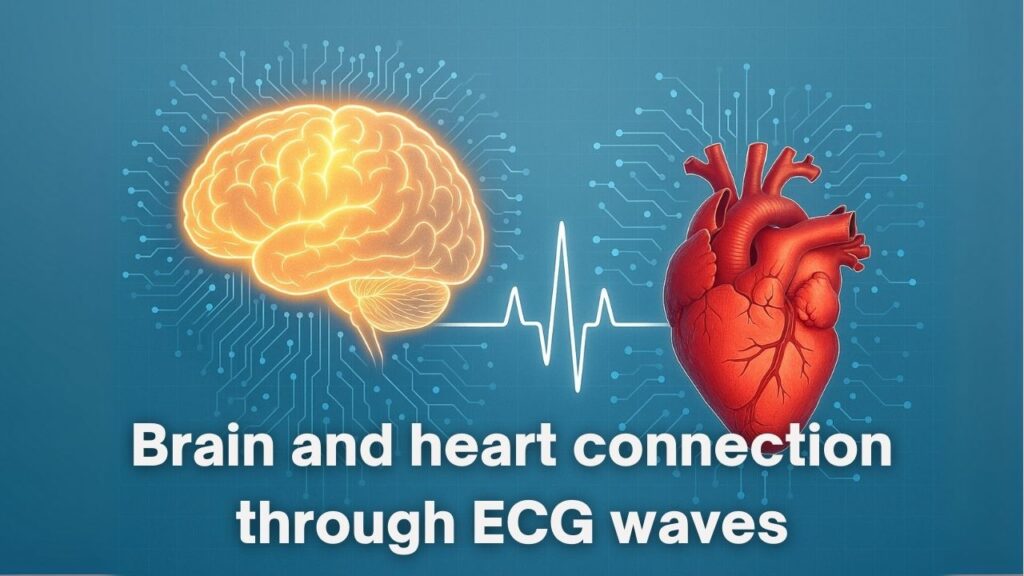case_study
AI-Enhanced ECG May Help Detect Cognitive Decline Years Before Symptoms Appear, AHA Study Finds
AHA researchers found that AI-analyzed ECGs may predict biological aging and brain decline, offering an affordable tool for early dementia risk screening.
By Dr. Raj K | Published on July 13, 2025

A routine heart test could soon do more than check for cardiac problems — it might also reveal how well your brain is aging.
In a new study presented by the American Heart Association (AHA), researchers found that artificial intelligence (AI) can analyze electrocardiogram (ECG) results to estimate a person’s “biological age.” And when that ECG-age is significantly older than the person’s actual age, it may be an early warning sign of declining brain function.
The team analyzed ECG data from over 63,000 adults in the UK Biobank. People whose ECG-age exceeded their real age scored lower on cognitive tests measuring memory, reasoning, and reaction speed.
“This approach could someday help clinicians screen for accelerated aging or early cognitive changes using nothing more than a routine ECG,” said Dr. Larisa Tereshchenko, study co-author and cardiologist at Cedars-Sinai.
ECG-Age: A New Biomarker for Brain Health?
The AI model, trained on ECG signals, generated biological age predictions. Participants whose ECG-age was five years older than their actual age had:
- 50% higher odds of poor reaction time
- 35% greater risk of short-term memory challenges
- Notably lower performance across brain function tests
Importantly, these findings remained valid even after adjusting for common risk factors like high blood pressure and diabetes.
Real-World Potential: A Tool for Early Detection
Though still under development, AI-enhanced ECG could give doctors a fast, cost-effective way to identify people at risk for early-stage dementia — long before symptoms appear.
“The ability to use a 10-second ECG to flag brain aging is incredibly promising,” said Dr. Sonia Sehgal, a geriatrician at UC Irvine not involved in the study. “Especially in primary care, where brain health isn’t often prioritized, this kind of tool could make a big difference.”
Its low cost and accessibility make it especially useful in large-scale public health settings.
What’s Next?
Researchers emphasize that the study shows strong correlation but not causation. More longitudinal studies are needed to confirm whether ECG-age can accurately forecast future cognitive impairment.
“This study adds to the growing evidence that heart and brain health are deeply connected — and AI is helping us read signals we never saw before,” said Dr. Tereshchenko.
A New Frontier for Routine Health Screenings
If future studies confirm these findings, AI-powered ECGs could become part of routine checkups — offering doctors a new way to detect changes in both cardiovascular and cognitive health.
At ECGkid, we believe in the power of early detection and lifelong learning. That’s why we’ve built a hands-on tool for mastering ECG interpretation from anywhere.
🎓 Want to sharpen your ECG skills?
Try PulsePoints by ECGkid — our interactive web app that turns complex ECG patterns into easy-to-understand challenges. Built for med students, nurses, residents, and ECG geeks of all levels!
→ Start learning now at app.ecgkid.com
AHA Conference Abstract (2025) Over 63,800 UK Biobank participants (ages 40–69) were analyzed, revealing a correlation between ECG-age and performance on six of eight cognitive tests. Those with accelerated ECG-age scored significantly lower, while decelerated ECG-age correlated with better outcomes PubMed +15 American Heart Association +15 ScienceDirect +15 EatingWell .
Related ECG News
-
Wearable ECG Tech Spots Post-Surgery Heart Risks: Vivalink & Brigham Study Paves The Way For Safer Recoveries
July 15, 2025 -
NIT‑Rourkela’s New Atrial Lead System Enhances ECG Clarity for Arrhythmia Detection
July 13, 2025 -
Athlete ECG: Predicting Sudden Death in Sports : ESC ECG Criteria (updated)
July 6, 2025